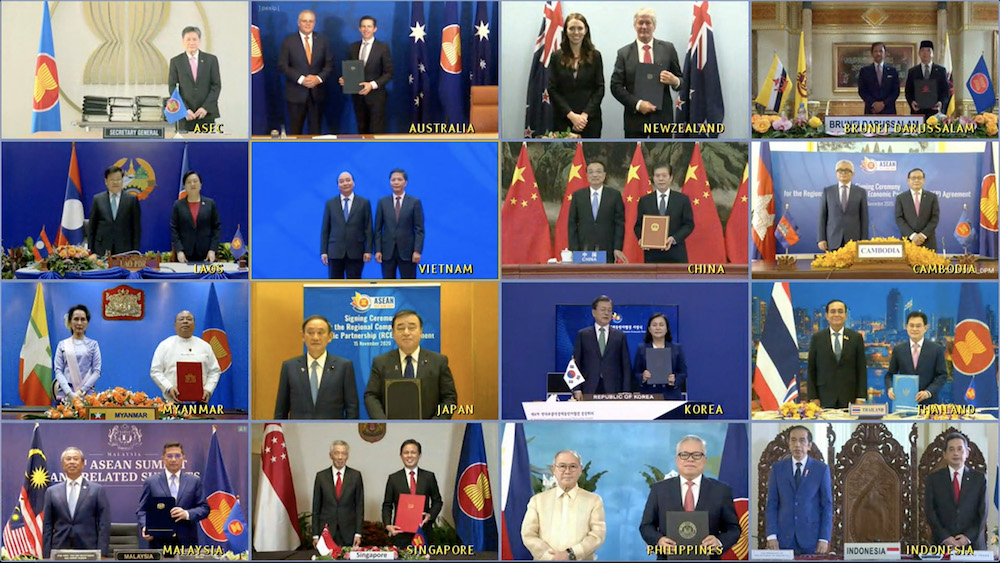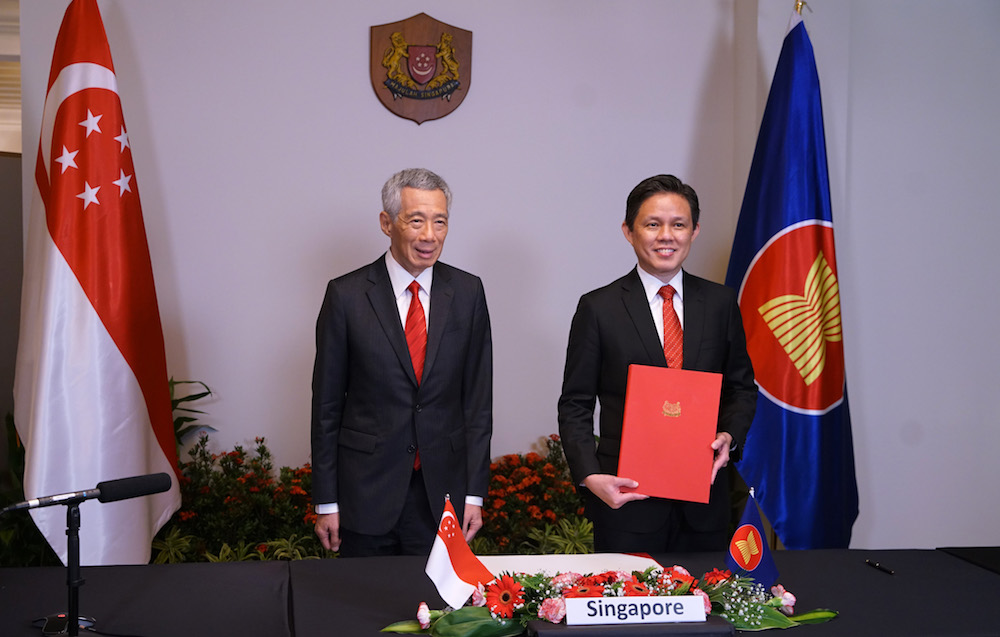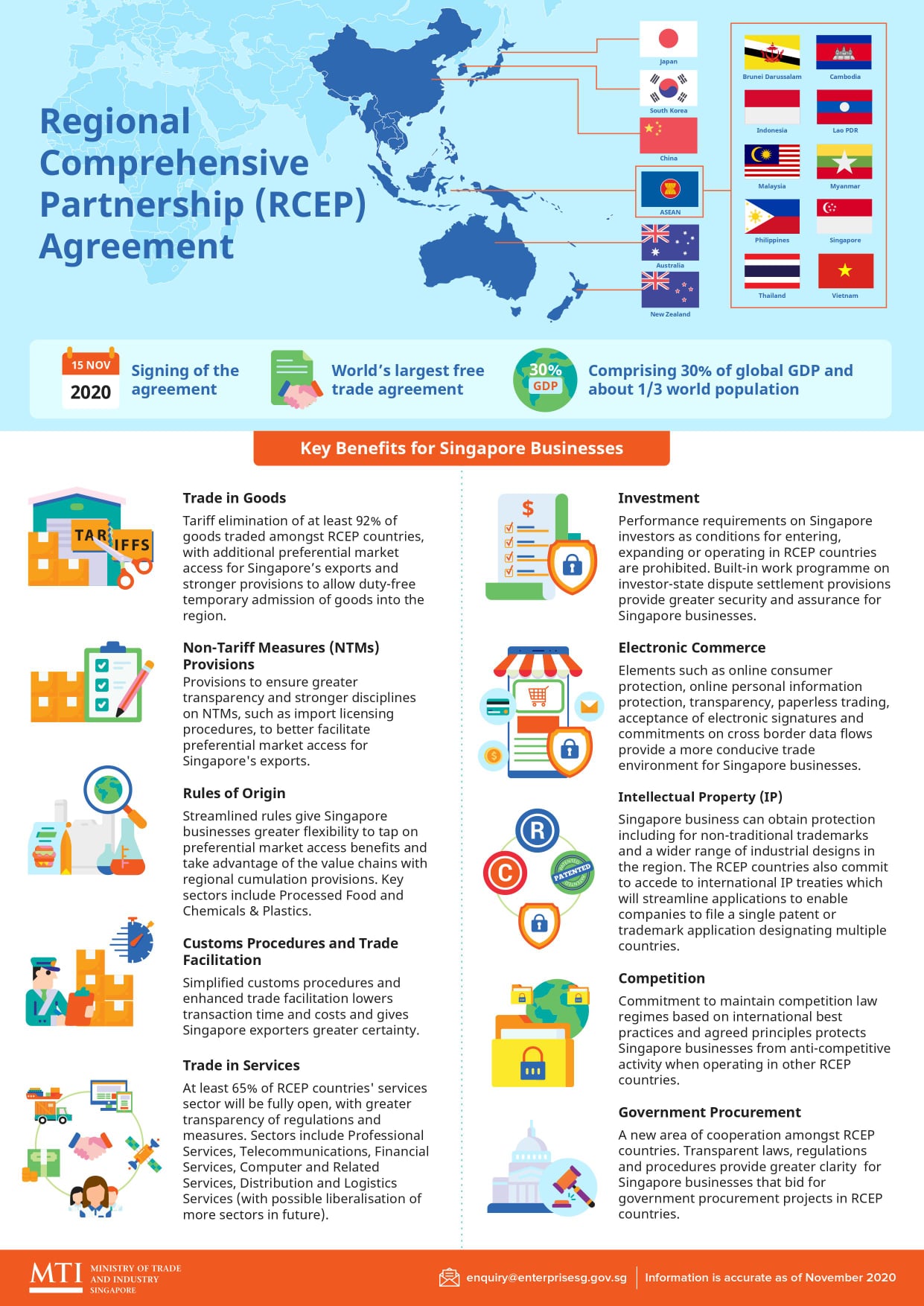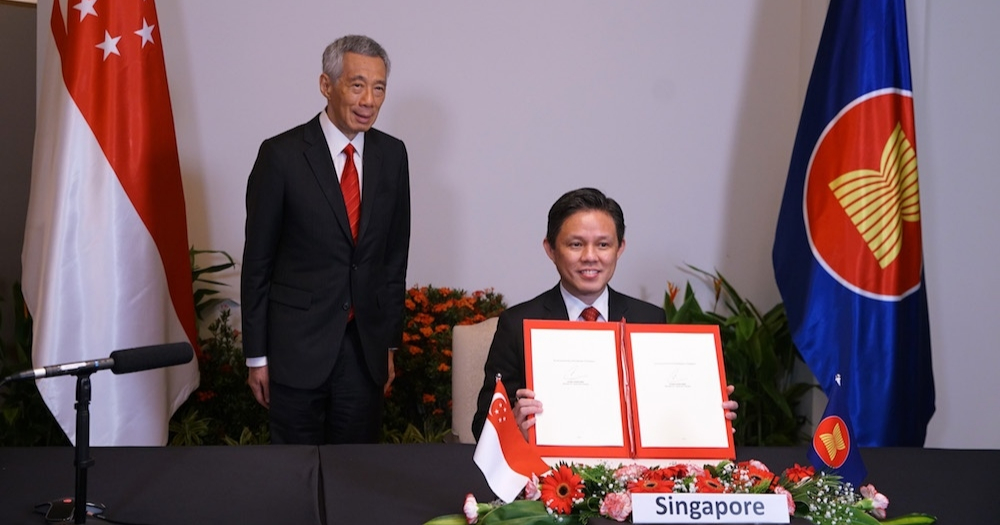15 countries have signed the Regional Comprehensive Economic Partnership (RCEP) on Nov. 15 after eight years of negotiation.
RCEP is the world's largest free trade agreement to date.
World's largest free trade agreement
The agreement involved 10 Asean member states (Brunei Darussalam, Cambodia, Indonesia, Lao PDR, Malaysia, Myanmar, Philippines, Thailand, and Vietnam) as well as Australia, China, Japan, New Zealand and the Republic of Korea.
 Photo courtesy of Ministry of Communications and Information.
Photo courtesy of Ministry of Communications and Information.
This agreement comprises 30 per cent of the world's Gross Domestic Product (GDP), and close to one-third of the world's population.
It also brings together a diverse group of economies: developed (Japan, Korea, Australia, New Zealand), middle income (Asean countries), and the world's second-largest economy (China).
Signing the agreement on behalf of Singapore is Minister of Trade and Industry Chan Chun Sing.
The signing was also witnessed by Prime Minister Lee Hsien Loong and leaders of RCEP participating countries.
 Photo courtesy of Ministry of Communications and Information.
Photo courtesy of Ministry of Communications and Information.
RCEP will enter into force after six Asean member states and three Asean FTA partners ractify the agreement with the Secretary-General of Asean.
PM Lee: A major step forward for the region
In a Facebook post, PM Lee said that the agreement did not come easy after "a tough slog of eight years".
However, it is a "major step forward" for our region, Lee adds.
A regional agreement during Covid-19 period shows Asian countries' commitment to open and connected supply chains during difficult times.
According to the Straits Times, PM Lee also expressed hope for India, which pulled out of the trade negotiation last November, to join RCEP in the future.
India withdrew from the trade talks after concerns over cheap China goods gaining market access, therefore affecting domestic producers.
Key benefits of RCEP
RCEP is expected to contribute to the region's economic recovery and strengthen confidence in the longer-term economic prospects for our region.
Its objective is to establish a "modern, comprehensive, high quality, and mutually beneficial economic partnership".
Some of the key benefits include tariff elimination, streamlining of rules and simplified custom procedures.
RCEP also includes non-traditional areas such as e-commerce and provides enhanced intellectual property protection.
It, however, does not touch on environment protection and labour rights.
Here's a summary of the key benefits:
 Graphic by Ministry of Trade and Industry.
Graphic by Ministry of Trade and Industry.
If you like what you read, follow us on Facebook, Instagram, Twitter and Telegram to get the latest updates.

